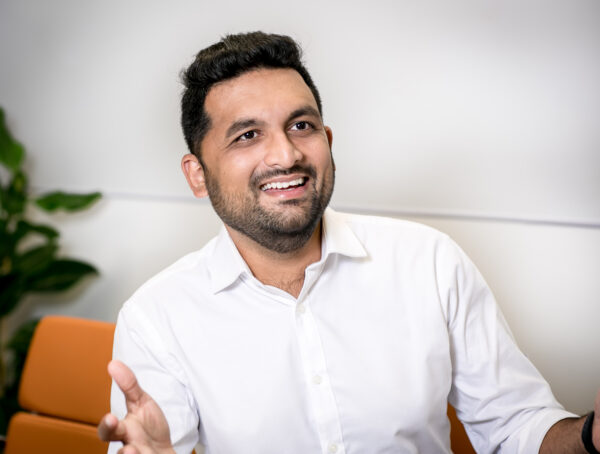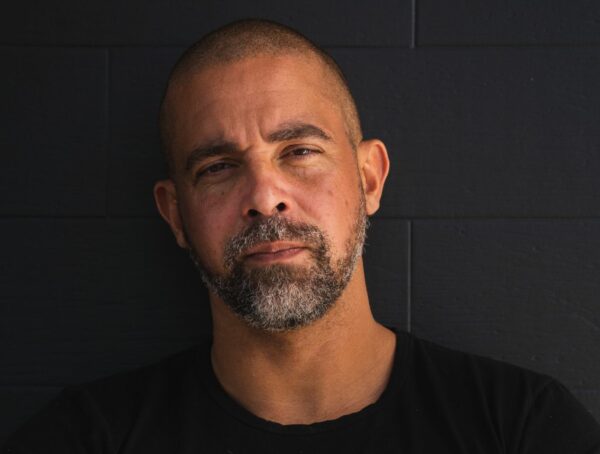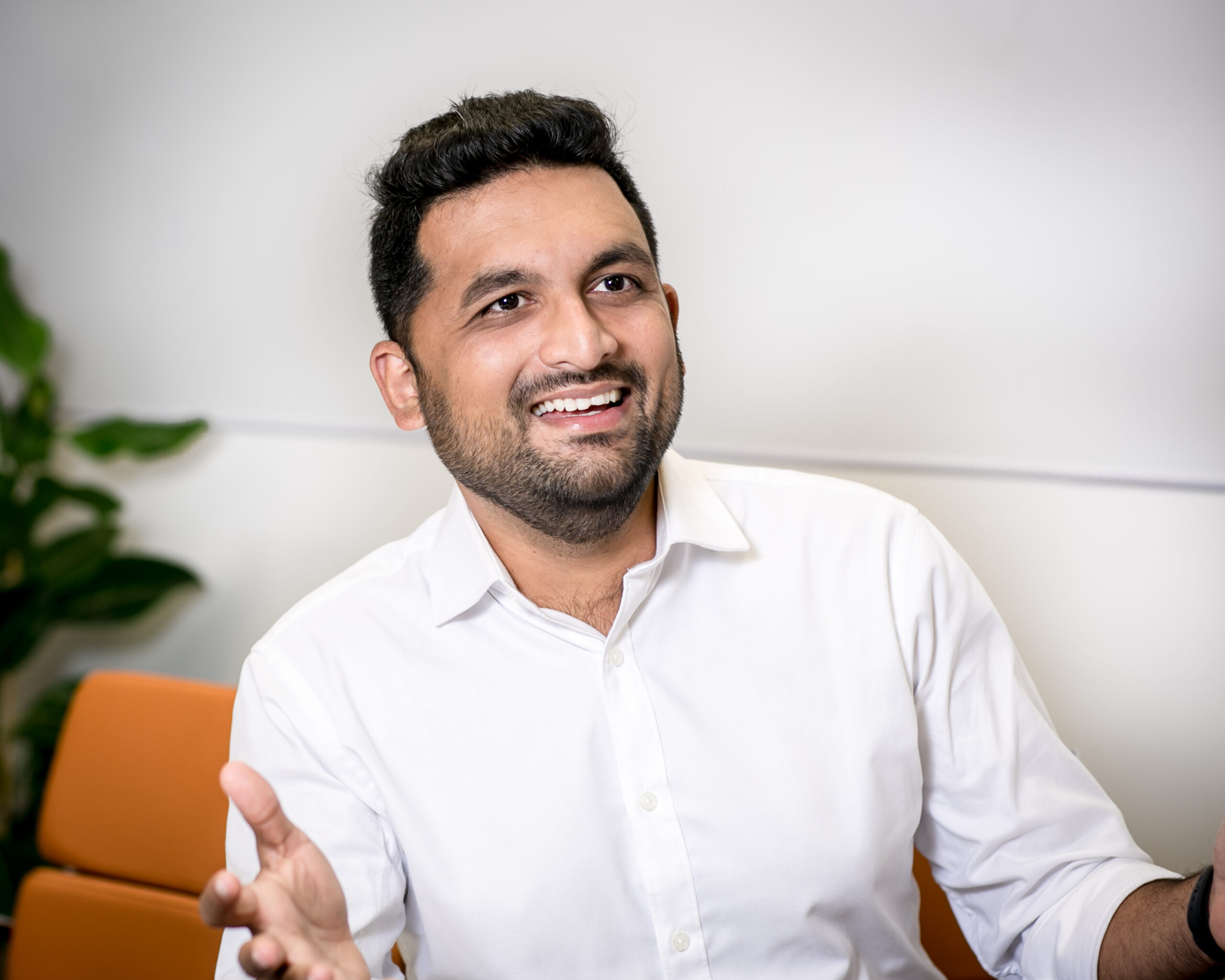Founder@ Interview
Interview with Laura Rana

“Go for it! The world of social entrepreneurship is an incredibly friendly and generous one that will welcome you with open arms, and help you turn your change-making dream into reality!.” – Laura Rana
Today we feature :, the founder at Khushi Kantha (‘Happy Blanket’). We hear their story in their own words, their successes, their challenges and their insights.
Let’s start by getting to know you. Can you please tell us a little bit about you and what you do?
My name is Laura Rana. I’m a mother to sixteen-month-old twin girls. In my ‘day job’, I help social impact organisations who are doing brilliant things in the UK and around the world measure, communicate and learn from their work, so they can build on what’s going well, fix what’s not, and attract more funding…..….and in my ‘spare time,
I’m launching a social enterprise. Khushi Kantha creates opportunities for mothers in Bangladesh to provide for their children with dignity, and contributes to the circular economy, by promoting a shift from take-make-waste to reclaim-repurpose-reuse.
We make ultra-soft, one-of-a-kind, multi-purpose baby blankets, hand-stitched from reclaimed cotton. ‘Kantha’ (which translates as “stitched cloth”) refers to the tradition of mothers crafting blankets for their babies by stitching together their old saris.
It is also the name given to the traditional embroidery stitch that is applied over the top. ‘Kantha’ can also simply mean ‘blanket’. ‘Khushi’ is the Bengali term for ‘happy’ – ‘Khushi Kantha’ therefore means ‘Happy Blanket’. We repurpose the ‘Kantha tradition, reserving the reclaimed saris for the inside layers of our blankets, and sourcing deadstock cotton fabric for the outside, to which we apply the traditional ‘Kantha’ embroidery stitch. Bangladesh is famous for its garments industry. Lots of fabric sadly ends up getting wasted at various stages of the supply chain.
This is a particular challenge the industry is facing right now, as a result of the Covid-19 pandemic. We want to collaborate with like-minded companies to rescue this fabric from landfills.
A great introduction and start to this interview. Can you please tell us, how did you start, from what age, and what made you decide to change direction and start?
The idea for Khushi Kantha was inspired by the birth of my half- British, half-Bangladeshi (and 100% cheeky) twin girls, Opi and Mahi, and my experience of working in the Rohingya refugee camps in Bangladesh while I was pregnant with them.
Thank you for that insight. So can you tell us…What does your business do and where is your company based?
Khushi Kantha creates ultra-soft, ethically-produced, multi-purpose baby blankets with a vibrant ‘stand out’ factor.
Hand-stitched from reclaimed cotton by mothers from the communities hosting the Rohingya refugees in Bangladesh, each one comes with a unique story attached.
As practical as they are pretty, a Khushi Kantha makes the perfect gift.
They can tick just about every box on a Mum’s daily to-do list.
Besides being used as a blanket, they can function as pram liners, sun shades or mini playmats while out and about….and even act as makeshift changing mats when the need arises!
Due to the challenges posed by the COVID-19 pandemic, Khushi Kantha’s first, super-limited collection of blankets has been created in London, with brilliant support from volunteer stitchers from my local community. I’ve just sold it through an online auction via my website www.khushikantha.com – all funds raised will be used to set up production in Bangladesh as soon as it’s safe to do so.
What’s the story behind your success? What led to your aha moment? how did you get to where you are now?
I gave birth to my half-British, half-Bangladeshi twin daughters Opi and Mahi in July 2019.
I spent the first half of my pregnancy in the coastal town of Cox’s Bazar in South-Eastern Bangladesh.
Once best-known for having the longest unbroken stretch of beach in the world, it is now infamous for another reason.
Despite being one of the poorest parts of a very poor country, the local population has welcomed nearly 1 million Rohingya men, women and children who have fled across the border from Myanmar to escape human rights atrocities.
During the year I spent working on the Rohingya crisis in Cox’s Bazar, Bangladesh, I got to know a lot of mothers from the host communities, and was able to hear directly from them how it was impacting their lives.
I was prepared for animosity – with so many hundreds of thousands of refugees settling nearby, and the associated challenges making their lives even harder, surely they would be resentful?!
Instead, I was overwhelmed by their generosity and compassion. When I arrived at the home of one mother, she told me she had shared some of her vegetables with the Rohingya, as she had heard that children were not being provided with enough vegetables during food distributions in the camps.
As the global refugee crisis is intensifying around the world, many countries are closing their borders, leaving the most vulnerable trapped in violence and uncertainty. Bangladesh did the opposite and welcomed the Rohingya when they arrived in desperate search of safety.
I came home to London just over 20 weeks pregnant, wanting to do something to help the mothers I had seen exhibiting such strength and kindness – but unsure of how to go about it effectively.
When my girls were born, they have gifted a large collection of traditional ‘Kantha’ blankets.
I was a bit overwhelmed to receive so many, and wondered what we were going to do with them all!
However, I soon realised their numerous uses: from swaddling the girls as tiny newborns to functioning as pram liners, sun shades, mini playmats, or even makeshift changing mats while out and about.
They washed really well and dried quickly – and their bright colours and traditional ‘kantha’ stitching made them really stand out. They were drawing compliments wherever we went!
I soon realised there could be a market for them, and this was how I could create opportunities for mothers whose position I could so easily be in if circumstances were different….and the idea for ‘Khushi Kantha’ was born!
Thank you for sharing that. What’s been your life’s biggest lesson so far?
My journey so far has involved two key developments:
Firstly, I quickly realised the potential safety and quality control issues associated with making baby products from recycled saris, as per the Bengali ‘kantha’ tradition. So I’m reworking the technique, reserving the repurposed saris for the inside layers of our blankets, and sourcing deadstock cotton fabric for the outside.
Bangladesh is famous for its garments industry – lots of fabric sadly ends up getting wasted at various stages of the supply chain, especially now, with all the cancelled orders due to the Covid-19 pandemic.
I want to collaborate with like-minded companies to rescue this fabric from landfills, and I’ve been having some exciting discussions with household name brands about partnership.
Secondly, I was planning to head over to Bangladesh in May, to introduce my daughters to their Bangladeshi family and set up production.
Then Covid-19 happened, and like the rest of the world, my plans had to change. I knew I had to come up with another way to confirm market demand before pouring more of my time, energy, and heart into turning my social enterprise dream into reality.
So I turned to my local community, teaming up with some of the leading members of the South London Scrubbers (a group of volunteers making scrubs for NHS frontline staff).
Inspired by my vision of using the collaborative power of a global community of mothers to build better futures for the next generation, they volunteered to stitch the first set of blankets, which I’ve just sold through an online auction – all funds raised will go towards the cost of setting up production in Bangladesh as soon as it’s safe to do so.
I’m still early in my journey, but I think I’d just tell myself not to panic when it looked like I was going to have to give up due to the multiple challenges faced by the global pandemic – that what is being to be is meant to be, and I will get back on track thanks to incredible support from Khushi Kantha’s every growing community of brilliant volunteers and pro-bono heroes.
If you were to go back in time, what piece of advice would you give to your younger self?
I first moved to Bangladesh in 2009, to work on a project that aimed to help extremely poor women get their families out of poverty by providing them with the means to earn a small income….and I’ve lived there on and off ever since.
Inspired by the incredible social entrepreneurs I’ve encountered through my personal and professional networks all over Bangladesh, it’s been a long-standing dream of mine to use everything I’ve experienced and learned to start my own initiative, working directly with women whose position I could be in if circumstances were different. I would tell my younger self to be patient, because looking back, every serendipitous connection I’ve made only the past thirteen years has ultimately led me to this path.
We’re nearly halfway through our interview so it’s a great time to ask how does your business run. What three tools make your business run better?
Mailchimp is the only one I can think of, to be honest – I get a bit overwhelmed by what’s out there, and would love some advice!
What do you know now that you wished you had known before?
I’m still early in my journey, but I think I’d just tell myself not to panic when it looked like I was going to have to give up due to the multiple challenges faced by the global pandemic – that what is being to be is meant to be, and I will get back on track thanks to incredible support from Khushi Kantha’s ever-growing community of brilliant volunteers and pro-bono heroes.

What has been your greatest or proudest achievement or moment?
Feeling like my one-year twin daughters will be proud of how I’m investing my time, energy, and heart, alongside raising them and freelance impact measurement work in the international development and humanitarian sectors (i.e. my ‘day job’).
What future life goals do you want to achieve and why?
I want to create opportunities for at least 300 women to generate sustainable incomes that empower them to provide for their children with dignity and collaborate with like-minded companies to save deadstock fabric generated by the Bangladeshi garments industry from landfills.
To finish our inspiring questions…” We believe that sharing inspiring words can inspire others.” If there was one positive thing you would say to someone to inspire and empower them what would it be and why?
Go for it! The world of social entrepreneurship is an incredibly friendly and generous one that will welcome you with open arms, and help you turn your change-making dream into reality!
“Thank you it has been great learning more about your founder story and Khushi Kantha (‘Happy Blanket’)”
To learn more about Khushi Kantha (‘Happy Blanket’) Visit www.khushikantha.com
Inspired by this story? Please share this story and other founder stories.
For more inspiring founders stories check out Founder Stories.
Disclaimer:
The views, thoughts, information, and opinions expressed in the text, videos, images belong solely to those of the individuals involved, and do not necessarily represent those of Founderat.com and its corporate owners, employees, organization, committee, or other group or individuals.















